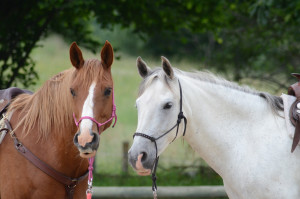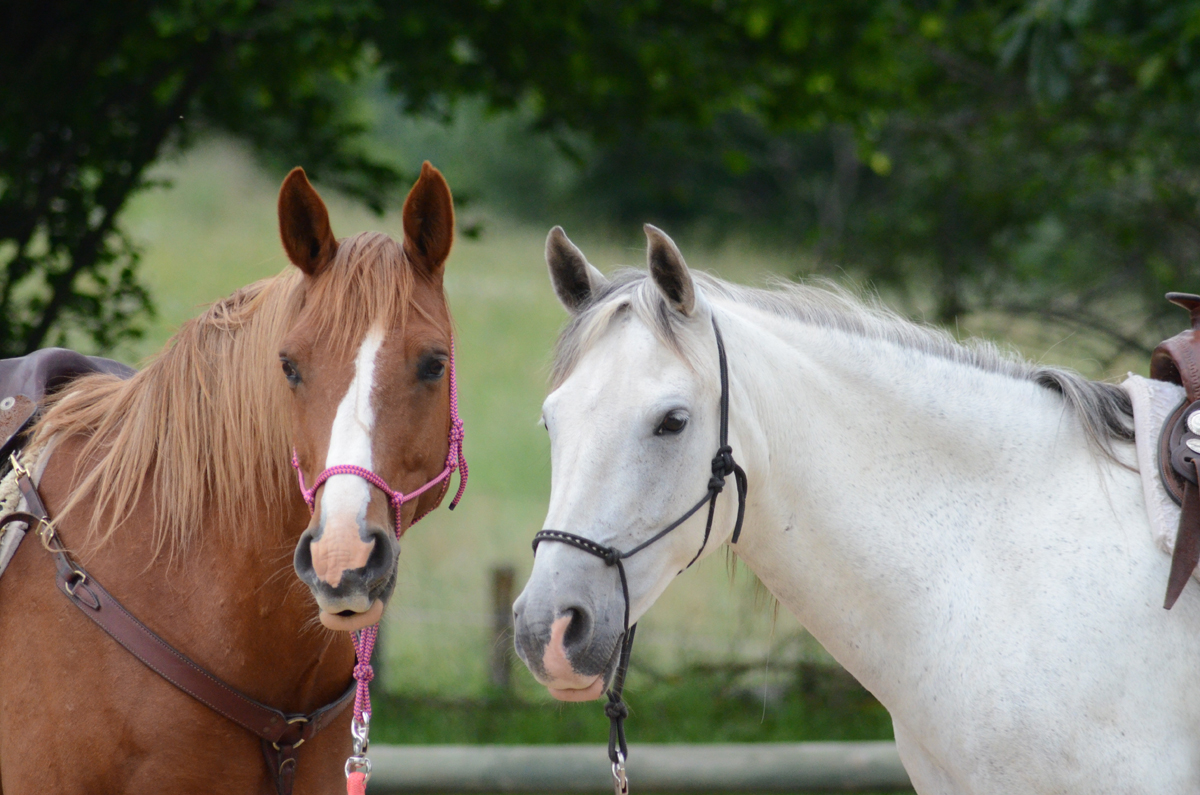Keeping Your Horse’s Lungs Healthy
By R. Paul Schwab, D.V.M.
 As we transition into fall and winter, many horses transition more into indoor environments. Although this seems nice, dry, and warm for the horse, it can be hard on the lungs in some barns. Respiratory problems are very common in horses, especially in stabled animals. There are multiple factors responsible for this.
As we transition into fall and winter, many horses transition more into indoor environments. Although this seems nice, dry, and warm for the horse, it can be hard on the lungs in some barns. Respiratory problems are very common in horses, especially in stabled animals. There are multiple factors responsible for this.
Environment
This tends to be a common factor in the development of respiratory disease. Horses are designed to live outside in a pasture. During periods of extreme weather, especially cold and wet, they do need to be able to seek shelter to escape the blowing wind and rain. Basically they need a roof and windbreak. Some barns are great shelters for warmth and comfort, but have limited ventilation. No matter how great your hay is, it still has dust, small particles, and possibly molds that get in the air. Urine and feces in the stall can also produce ammonia fumes that can irritate the respiratory mucosa of the horse. When the mucosa gets damaged, it is easier for bacteria and viruses to colonize the respiratory tract. When evaluating your barn make sure there is an inlet and outlet for air. Horses can handle cold weather quite well, but they can’t handle poor air quality very well. I tell clients to spend some time in the horse’s stall themselves and test the quality of the air with their own nose. Also, feed the horse’s hay on the ground. It’s better for their lungs as well as their dental health. Soaking hay in water can also help control dust.
Infectious Disease
Infectious agents (bacteria and viruses) are another important cause of respiratory disease. These include viruses such as Equine Influenza Virus and Equine Herpes Virus (Rhinopneumonitis) and the bacteria Streptococcus equi (Strangles) and Rhodococcus equi. These are all extremely contagious and usually affect multiple horses in a barn. Clinical signs include coughing, nasal discharge, fever, and lethargy. Again horses in barns and stables can be more likely to spread these infections because of the concentration of animals as well as the proximity of animals to each other. Humans can easily spread infection from one animal to the next doing simple chores such as watering and feeding. Control for most of these revolve around vaccination and basic biosecurity measures (isolation, disinfecting, etc.).
Recurrent Airway Obstruction
Mentioned earlier, Recurrent Airway Obstruction is disease of the small airways in the lungs. Some may remember this disease’s older name Chronic Obstructive Pulmonary Disease (COPD) or “Heaves.” It is similar to asthma in people. These may be molds, dusts, or small feed particles that the horse has become hypersensitive to. Horses with RAO tend to be adult horses that suffer from a chronic dry cough, especially in indoor environments and dusty conditions. They can also have episodes of breathing difficulty and wheezing during high allergen seasons or environments. Your veterinarian can diagnose this usually by physical exam, but may need to perform a broncho-alveolar lavage (BAL) to confirm the diagnosis. A BAL is a procedure where a tube is placed through the horse’s nose, down the trachea and into the large airways of the lungs so that fluid can be collected and analyzed by a laboratory. Treatment of RAO is primary directed at controlling the environment and food. Horses with RAO cannot tolerate dusty hay and possibly cannot have hay at all. They may have to be fed a pelleted or cubed diet. Medications such a Clenbuterol are used to relax and open the airways in the lungs, and severe cases may have to be placed on corticosteroids to reduce inflammation.
Everything Else
Environment, infectious agents, and RAO account for a large amount of respiratory disease in the horse. Diagnostic tools such as culturing and blood work as well as advanced procedures like broncho-alveolar lavage and endoscopy can be extremely helpful in getting to a specific cause of disease and rule out more unusual illness such as guttural pouch infections, sinus infections, and even neoplasia (cancer).
A healthy respiratory tract relies on good nutrition, adequate vaccination, and above all good ventilation. If you have concerns about your barn, or have problems with chronic coughing or other respiratory problems in your horse, have your veterinarian evaluate not only the horse, but also your horse’s environment.
Published October 2011 Issue

The Northwest Horse Source is an independently owned and operated print and online magazine for horse owners and enthusiasts of all breeds and disciplines in the Pacific Northwest. Our contemporary editorial columns are predominantly written by experts in the region, covering the care, training, keeping and enjoyment of horses, with an eye to the specific concerns in our region.






